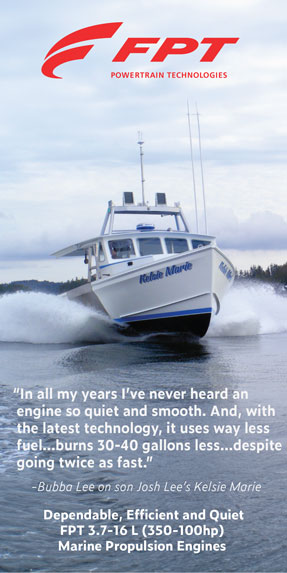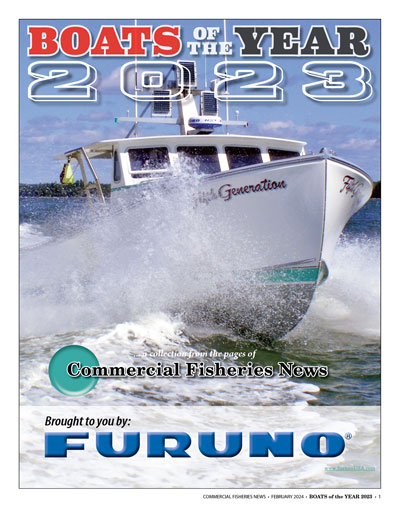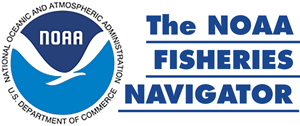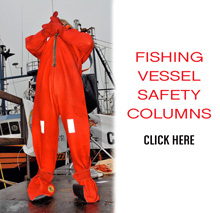Are there certain fishing vessel casualties we see in the summer months that we could classify as preventable?
Could we reduce fishing vessel casualties if we raised awareness of such preventable casualties?
The answer is, yes. That would seem to be the case.
The USCG database of fishing vessel casualties — documenting incidents to which the Coast Guard responded during June, July and August for 2016, 2017 and 2018 — shows that there were about the same number of total responses across the three years:
• 56 in 2016;
• 50 in 2017; and
• 48 in 2018.
And the trend, at least over these three years, seems to be toward fewer casualties requiring response. That is the good news.
Engine failure, collisions
Engine casualties are among the more prevalent likely preventable casualties the Coast Guard responded to during June, July, and August in the most recent three years.
As a percentage of all fishing vessel incidences, engine casaualties checked-in at 18% (10 of 56) in 2016, 14% (7 of 50) in 2017, and 20% (10 of 48) in 2018.
On the other hand, another preventable casualty, collisions, checked-in at 5% (3 of 56), 6% (3 of 50% and 19% (9 of 28) during these same three years.
While the number of engine casualties has been fairly steady over the three years, you will notice the number of collisions shot up to 19% in 2018.
Graphing this data allows us to see the strikingly large leap in the number of collisions in 2018 (see accompanying chart).
Preventive steps?
Perhaps it is presumptuous to label engine casualties preventable. But let’s discuss.
Summer, as we all know, is a season of intense fishing for many fishermen in our region.
It is possible that it is hard for fishermen to take time out from good fishing to follow the manufacturer’s service recommendations for their vessel’s engine and powertrain.
If the captain keeps a log of running hours, it is easier to determine when maintenance is needed,
For example, engine oil and oil filters should be changed at least at 400 hours (or according to the manufacturer’s recommendation).
The oil and oil filters for auxiliary gensets should be changed between 250 and 300 hours of service; fuel filters for engine and gensets should be changed monthly, and air filters also should be changed monthly.
These maintenance recommendations were published in CFN Feb. 2015 in Fred Mattera’s Safe Boat-Smart Boat column.
While these are monthly preventive maintenance activities, Fred’s checklist includes daily and weekly suggestions.
These include checking all fluid levels such as fuel, oil, coolant, and power steering daily; and checking and testing all batteries and chargers weekly.
As with most preventive measures, “a stitch in time saves nine” according to Benjamin Franklin.
Careful attention to the fluids, filters, and lubrication may save a captain an unfortunate tow to port.
Collision avoidance
Regarding collisions, what about preventive measures to reduce these dangerous encounters?
Of course, the weather – fog, wind, and rain in particular — can be a factor and beyond our control.
However, preventive measures here might include:
• Keeping attentive watch,
• Ensuring navigation lights and fog horns/alarms are fully operational,
• Using radar,
• Knowing and observing rules of the road, and
• Being able to make good decisions regarding heading out, seeking safe harbor, or returning to port.
When we see that the number of collisions increased three-fold — from three in 2017 to nine in 2018 — we have to wonder whether fishermen and recreational boaters are trying to cut corners, or whether perhaps there are fishermen and boaters who simply have less experience on the water.
For the rest of this summer we should all concentrate on taking steps to avoid collisions. It is the responsibility of everyone on the water.
In addition, in order to reduce the seriousness of collisions, every vessel captain (commercial fishing and recreational) should be sure his or her vessel is fully in compliance with Coast Guard safety equipment requirements.
Ann Backus, MS, is the director of outreach for the Harvard School of Public Health’s Department of Environmental Health in Boston, MA. She may be reached by phone at (617) 432-3327 or by e-mail at <abackus@hsph.harvard.edu>.
FISH SAFE
• Undertake preventive maintenance on your engine (and complete vessel, of course) on a daily, weekly, or monthly schedule, according to manufacturer’s recommendatons.
• Give thought to preparations and actions to take that might reduce the risk of a collision.
• Keep track of the weather and make good decisions about seeking safe harbor early.






